Island of unfreedom: why it's hard to escape from Cuba
Categories: Nations | Photo project | World
By Pictolic https://pictolic.com/article/island-of-unfreedom-why-its-hard-to-escape-from-cuba.htmlDespite the obvious warming of relations between Cuba and the United States and the lifting of many restrictions, too little time has passed for life on the island to change significantly. Photographer Lisette Poole in her photo project told the story of one escape from the island.
The author recalls: "I had been living in Cuba for about a year when I met Marta. She was sitting in the car of her friend Mitya, for whom I was shooting a photo project. Martha was smoking a cigarette, and she had long nails on her hands. I took a picture.
They were picking me up from the police station. I was detained for taking pictures of a policeman on the street and not having a press card with me. Marta had a guara — in Cuba, this is what they call a certain ease in establishing friendly relations with strangers. I don't remember what we did that day, but Martha took my phone number and started calling me often and asking me to keep company."
(16 photos in total)
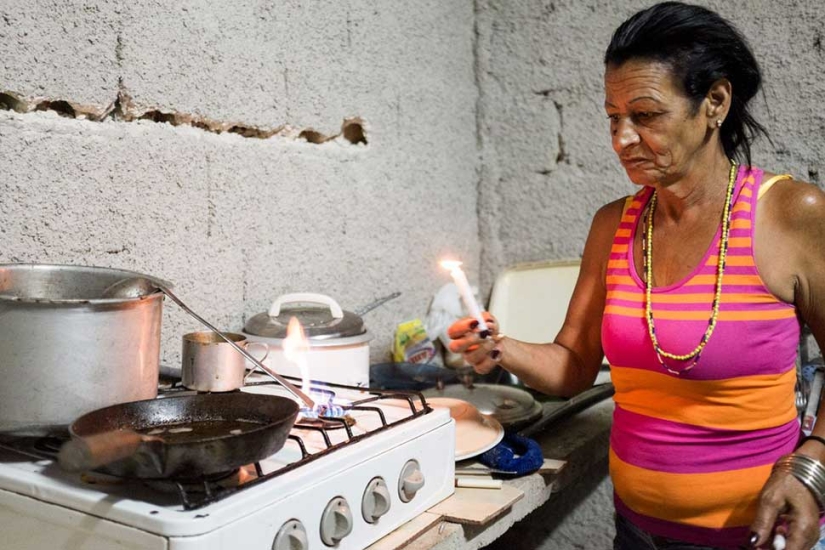 Source: Mashable
Source: Mashable
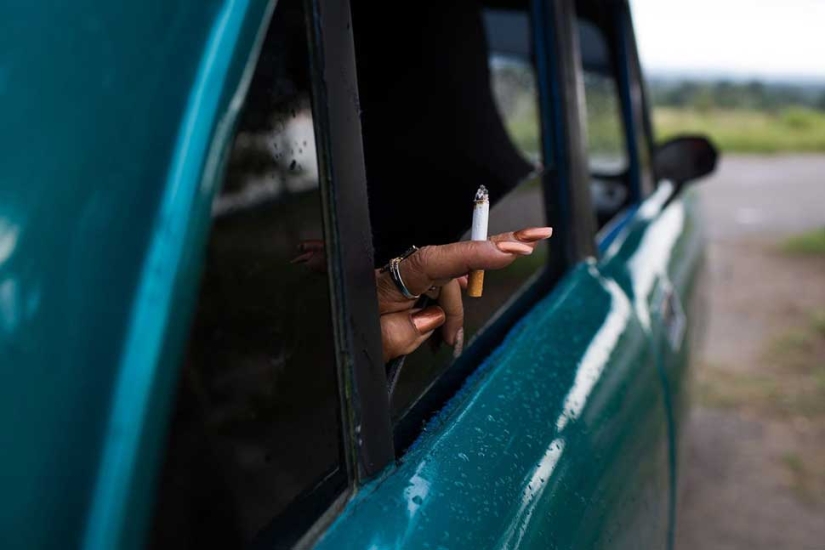
Martha's hand is the first photo I took before I saw her face.
I started visiting her at her little house in Marianao. Different people, children living in the neighborhood, were constantly entering and leaving the house. "You need to meet my friend Liseth," Martha said. "She's your namesake."
When I finally got to know Liseth, after listening to a few weeks of stories about her, she behaved wilfully and did not pay any attention to me - I had to win her over. I liked that about her. I felt that Marta had an interesting story, one that is rarely seen in the media, so I continued to spend time with her. A little after we met, she mentioned that she wanted to leave Cuba via Guyana, as, as far as I knew, many Cubans do. I said: "I'm with you," she agreed. Martha was delighted, because she was afraid to go alone.
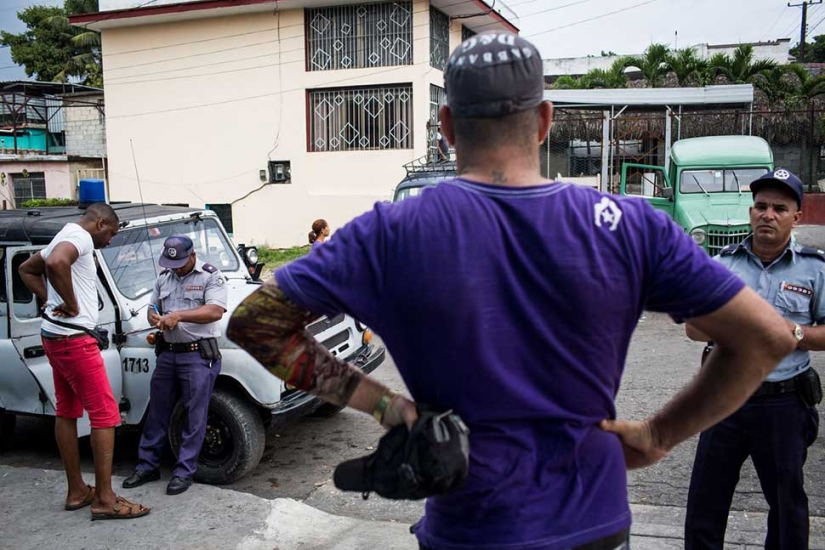
The picture, because of which I was detained and brought to the police station.
I explained that my task was to shoot her from a subjective point of view and that I would not be able to interfere with her plans or pay her way. She agreed. There was no plan yet. Martha was saving up for the trip. First she sold the house, moved into a small apartment next to her sister's house. Then she said that Liseth wanted to join her on the trip. The plan was vague, it seemed that it would never materialize.
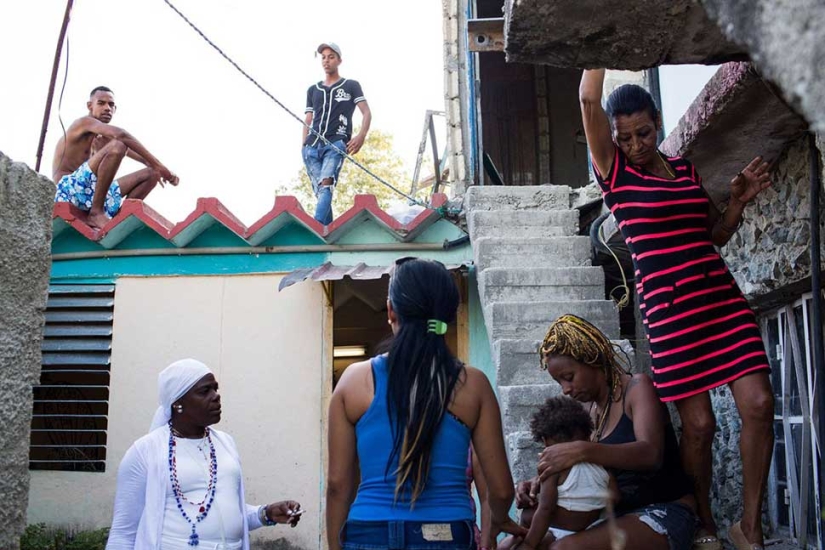
Martha's house in Marianao is a constant mess of friends and relatives.
At the end of April last year, when I had been in touch with Marta for about six months, she called me and said that she and Liset were going to buy tickets tomorrow and planned to leave Cuba in about two weeks. "Are you going or not? You're afraid, you won't do it!" she shouted into the phone.
I went with them to the Copa Airlines office the next day. Martha was shaking, smoking one cigarette after another and was completely terrified. Liseth was cheerful and took over all the moving. She even helped Marta pay for a plane ticket, which cost 965 CUC (about 880 euros. — Ed.). They bought round-trip tickets knowing they would never come back.
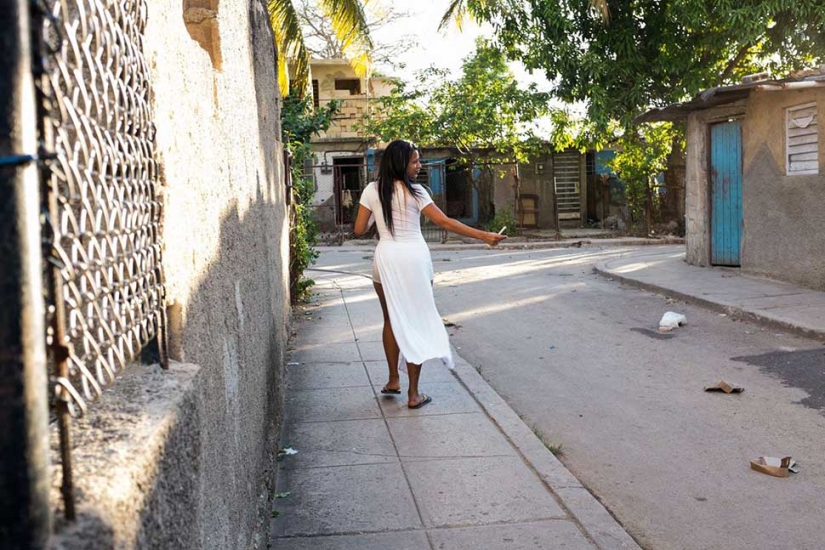
Liset in her neighborhood of Las Yaguas, part of Marianao.
I hung around them, taking pictures. Liseth showed me pictures of Joey, her boyfriend, paying for the trip. They only met in January, but he wanted to help her. I was worried. I knew I wanted to go. I was hoping to shoot this for a long time. I had relatives who took such a trip, many friends who came to the United States with stories of jumping the border. I've been chasing such a story for more than a year and in many ways I felt I had to shoot it.
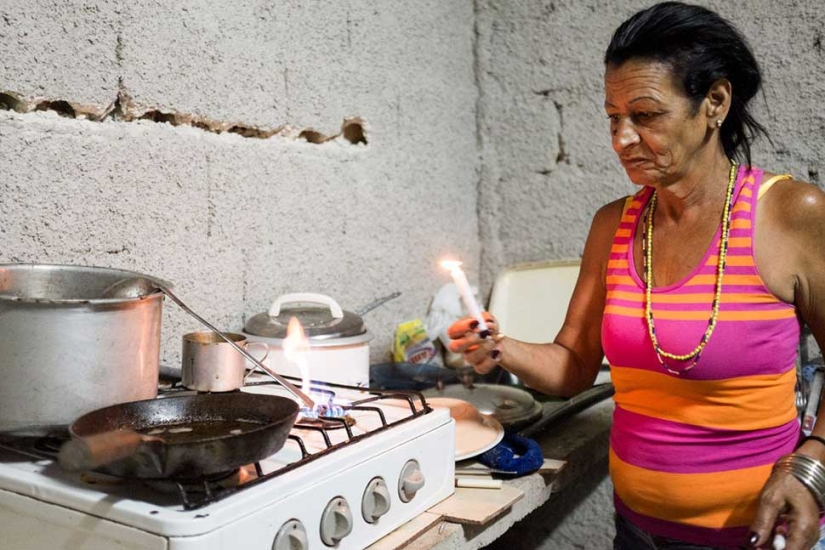
I'm Cuban. My whole life is colored by the experience of the Cuban diaspora. I have relatives who left Cuba as part of each of the waves of emigration — the post—revolutionary war (my mother left Cuba with her family when she was 12 years old), then the Marielitos gang in the 80s, when my grandmother took six nephews to her, people I grew up with, who they drank, sang songs and prepared dessert "Arroz con leche" for me. Then I remember watching the news with my mom's cousins in Miami. They had videos of themselves from the Spanish-language news about how they were caught by the Coast Guard during the crisis of Cuban migrants who swam to the United States on inflatable boats. I looked at my mom: she was crying.
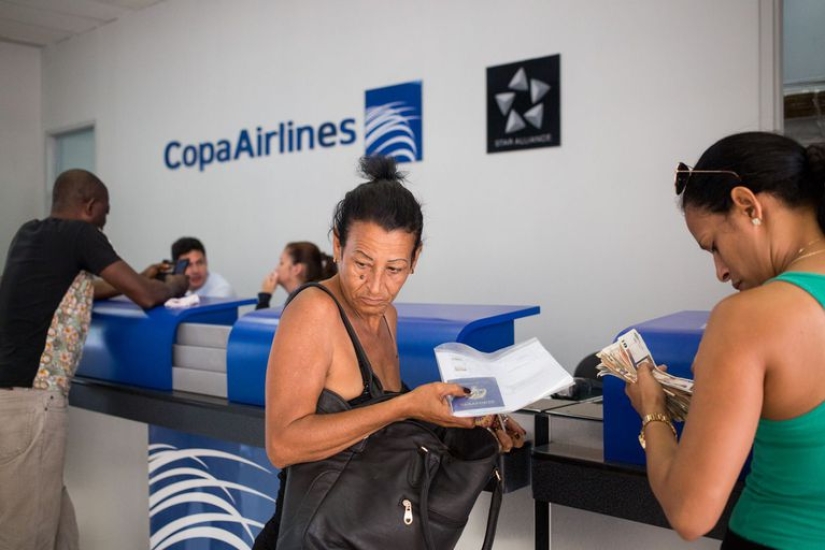
Marta and Lisette buy plane tickets in Havana on April 28, 2016.
In 2015, my cousin and his couple left Ecuador for the north. I followed their journey while I was in Cuba, periodically corresponding with them as they moved closer to the United States. I remember how they were detained in Tapachula for two weeks, and I started calling local journalists to help me find them. I was in Havana with his mother, Aunt Felicia. All the time he was getting to the USA, all two months on the road, I saw how deeply sad Aunt Felicia was, whose expression of deep concern did not leave her face. Not knowing where he was and what was wrong with him was too hard for her.
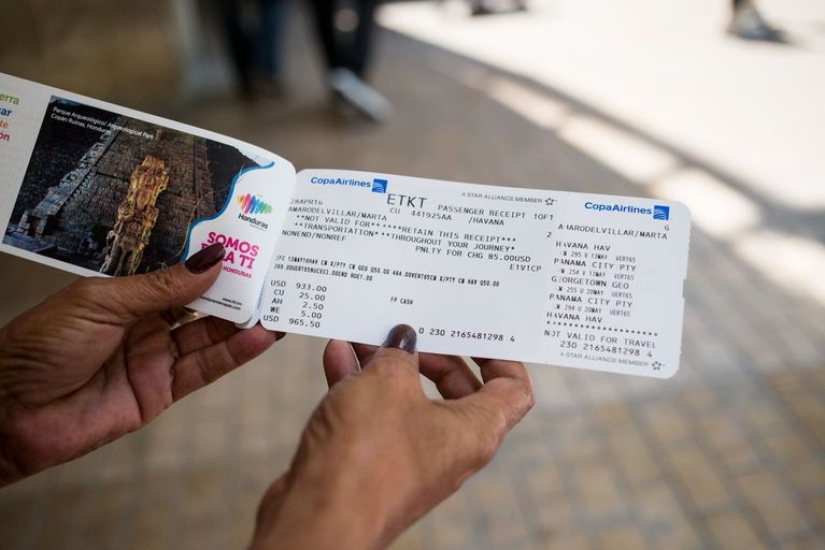
Martha's ticket.
The current wave of migration through Guyana is the newest chapter in this story, with which I feel a strong connection. After I lived in Cuba for a while, I saw in it the complete opposite of the stories that Cuba is changing, tourism contributes to the economy and everyone is happy. I knew that Marta and Lisette were average Cuban residents who felt that their lives would not change so quickly and wanted to get to the United States before the "dry and wet feet policy" was canceled. You could understand them: if I was born in Cuba, I would also be one of them, wouldn't I? It was even easier to imagine, because I even have the same name as one of my heroines. Liseth!
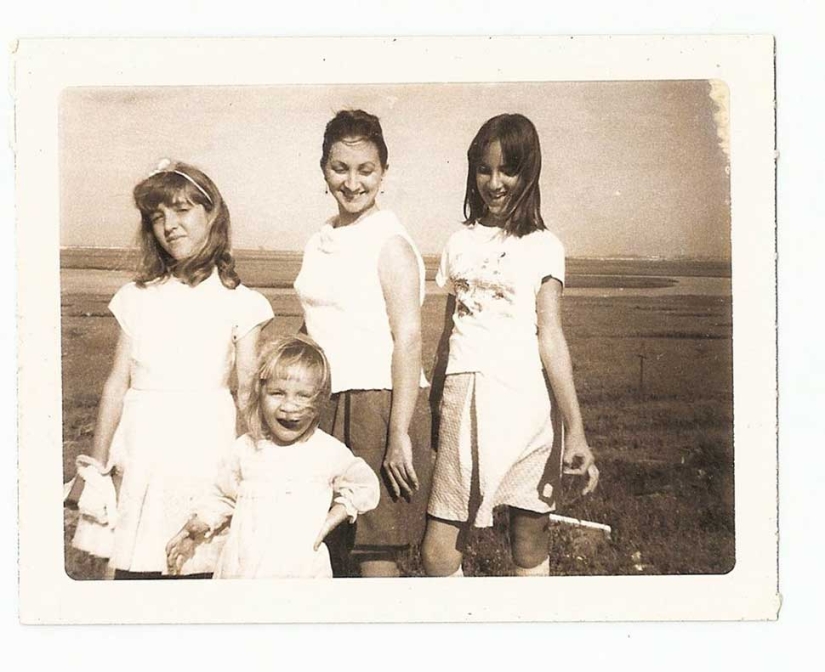
Clockwise from left to right: my aunt Ophelia, grandmother Syra, my mother Julia and Aunt Syra were in Los Angeles when they first came to the USA.
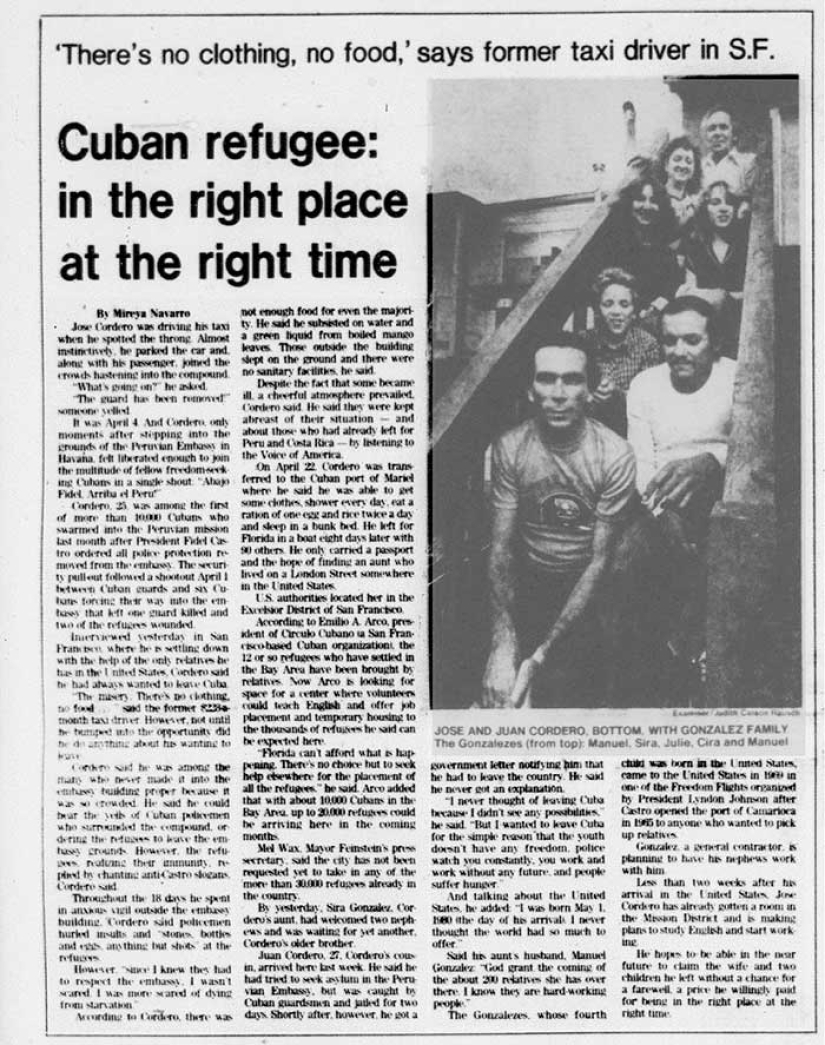
An article in the San Fransisco Examiner newspaper about how the grandmother received all the cousins of Marielito in her house. My mom, grandma, mom's cousins and grandpa are in a newspaper photo.
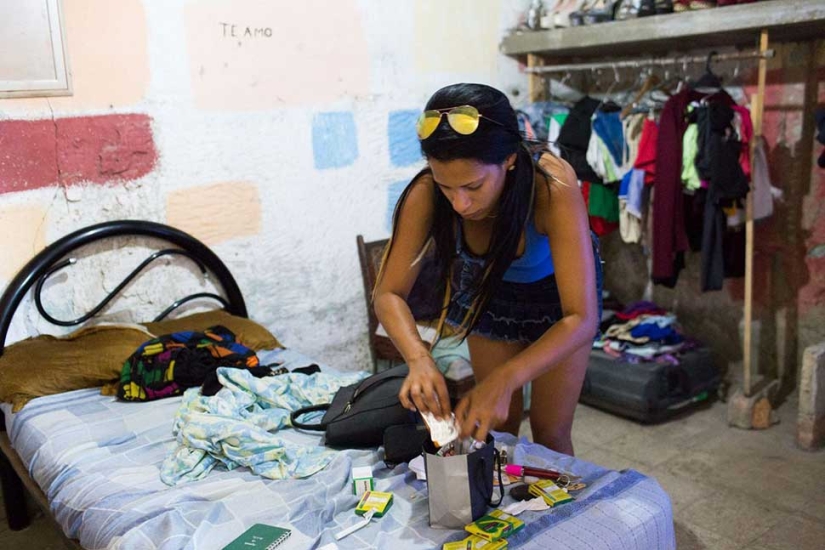
Lisette is packing at her home in Marianao.
After filming Martha and Lisette buying tickets, I began to think about my future decision. I spent my days in hotel lobbies with Wi-Fi, calling New York. I contacted Marcel, who was my agent at the time, and my best friends among photojournalists, Natalie and Kirsten, to ask them for advice. What should I do? I didn't have time to prepare.
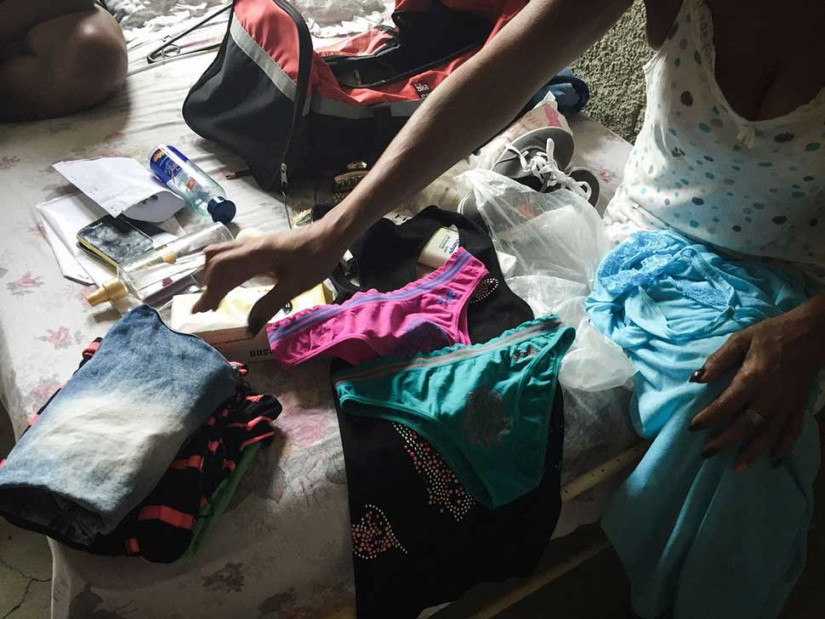
Martha's things while she packs her bags.
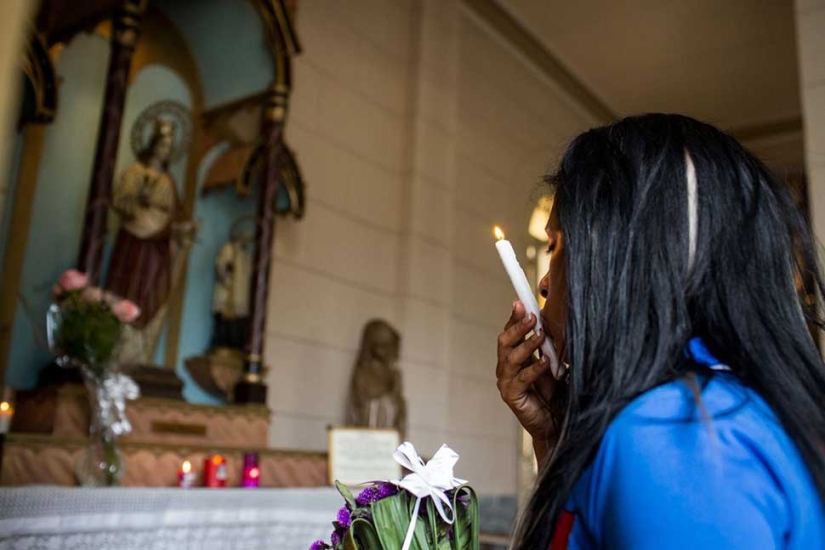
Lisette in the church of St. Lazarus prays to the saints for the blessing of her journey.
After discussions, prayers, tantrums and several sleepless nights, the answer was clear: the fear of not going was stronger than the fear of what I might encounter on the trip. I was ready. I formulated a plan of action in case of danger with the help of colleagues who connected me with their friends, people with whom I was not familiar, in the countries where I was going to go. They helped me. One of my friends sent me some equipment from the USA - a GoPro camera and a 35 mm film. I collected the cash. I bought myself a ticket to Guyana. One way.
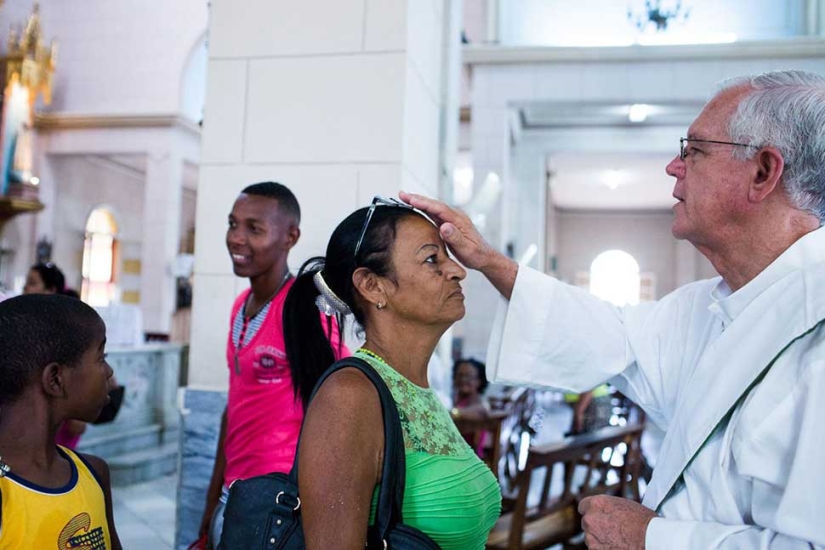
Martha is blessed by a priest in the church of St. Lazarus a few days before leaving Havana.
Over the next few weeks, Lisette and Martha said goodbye to relatives, finished unfinished business and went to church to pray for a blessing. They went to their godmothers practicing santeria to perform some rituals for protection. I took pictures.
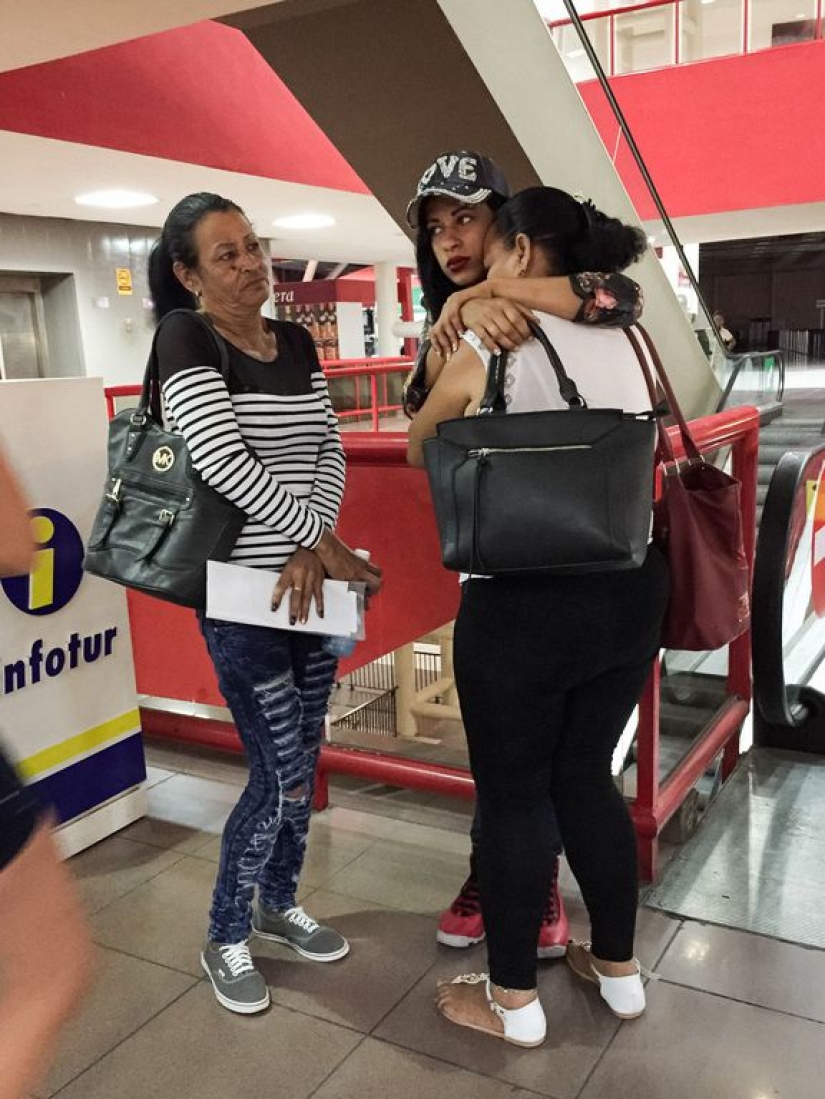
On Friday, May 13, 2016, we took off from Jose Marti National Airport.
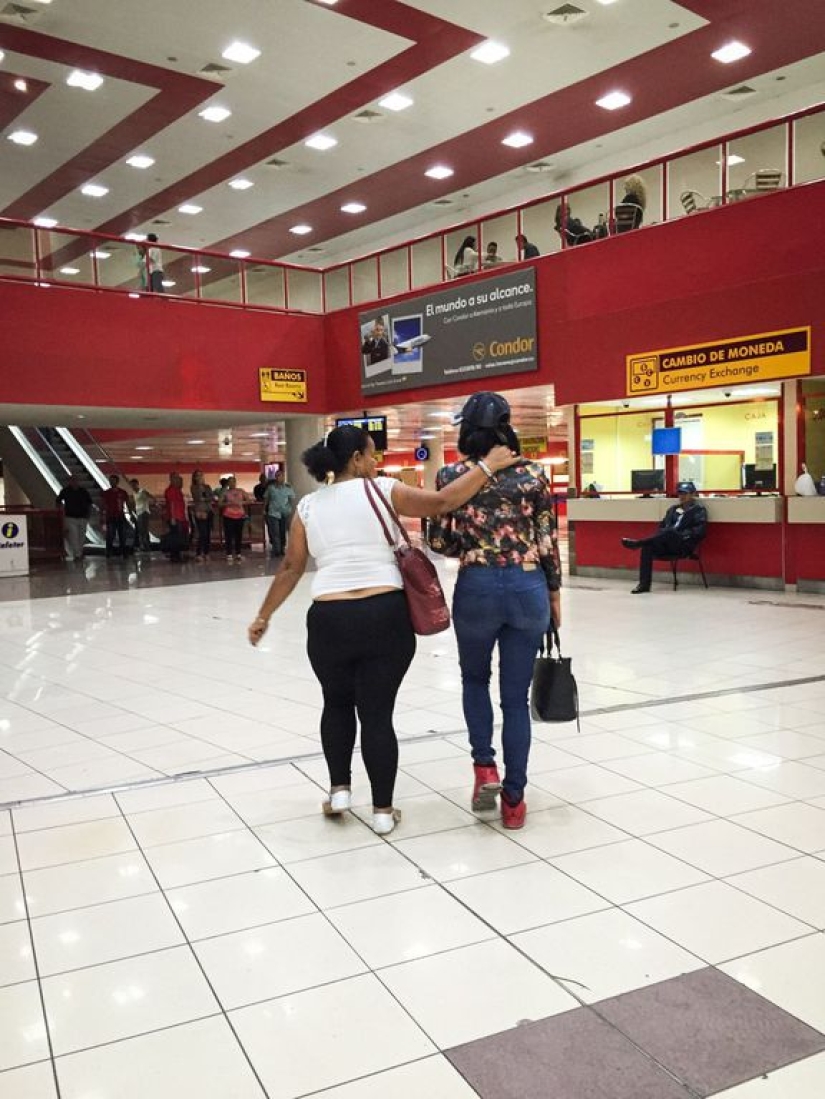
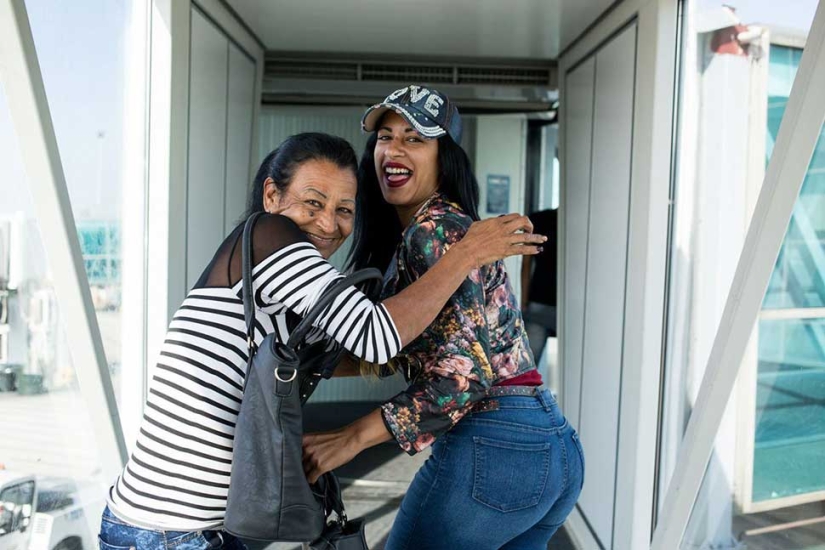
Keywords: Refugees | Cuba | Migrants | Escape | Regime | Socialism | Usa | Emigration
Post News ArticleRecent articles

It's high time to admit that this whole hipster idea has gone too far. The concept has become so popular that even restaurants have ...

There is a perception that people only use 10% of their brain potential. But the heroes of our review, apparently, found a way to ...
Related articles

Many guests of the Island of Freedom, barely having time to set foot on Cuban soil, hear from the guides & # 8212; " Have time to ...

It is known that Jews have been living on the territory of Russia, Ukraine and Belarus since time immemorial. Surprisingly, the ...

Meyer Lansky is one of the most successful gangsters in the history of the United States. He was born into a poor Jewish family, ...

New Year's is a time to surprise and delight loved ones not only with gifts but also with a unique presentation of the holiday ...